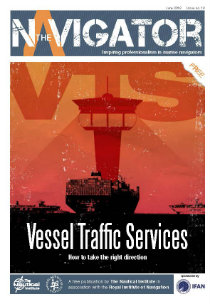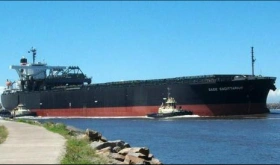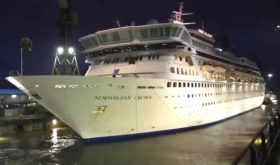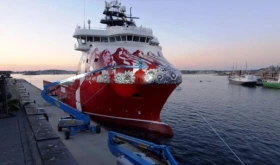The IMO MEPC held its 64th Session at IMO from Monday 1 through Friday 5 October with a high attendance of about 900 delegates. A Review Group on Ballast Water matters was formed together with 3 Working Groups on the subjects of Ship Recycling, Technical Co-Operation and Transfer of Technology, also Air Pollution and Energy Efficiency. In addition, 2 Drafting Groups studied Amendments to the IBC Code and Interpretations/Reports of sub-committees. Finally, an informal Technical Group met out-of-hours to report on the Saba Bank PSSA. The next MEPC meeting is scheduled during May 2013.
Below is a summary of what has been discussed during the meeting.
Energy-efficiency measures for ships.The MEPC adopted amendments to the 2012 Guidelines on the method of calculation of the attained EEDI for new ships (IMO Resolution MEPC.224(64)), relating to the calculation of shaft-generator power and shaft-motor power. Among other the following guidance and interpretations have been approved:
- Unified interpretation for the definition of “new ships” and “major conversion” (for further information refer to SAFETY4SEA & IMO MEPC.1/Circ.795).
- Unified interpretation on the timing for existing ships to have on board a SEEMP (for further information refer to SAFETY4SEA & IMO MEPC.1/Circ.795).
- Unified interpretation on the appropriate category to be applied for dedicated refrigerated fruit juice carriers. More specifically ships dedicated to the carriage of fruit juice in refrigerated cargo tanks should be categorized as refrigerated cargo carrier (refer to IMO MEPC.1/Circ.795)).
- The draft MEPC-MSC Circular for the interim guidelines for determining minimum propulsion power to maintain the manoeuvrability of ships in adverse conditions (alro refer to IMO MSC-MEPC.2/Circ.11)
- Interim guidelines for the calculation of the coefficient fw for decrease of ship speed in representative sea condition for trial use (refer to IMO MEPC.1/Circ.796).
- Unified interpretation for section 2.3 of the supplement to the IAPP certificate (refer to IMO MEPC.1/Circ.795)).
Update on GHG emissions estimate. The MEPC, endorsed, in principle, the outline for an update of the greenhouse gas (GHG) emissions estimate and agreed that an expert workshop should be held in 2013, to further consider the methodology and assumptions to be used in the update. The current estimate, contained in the Second IMO GHG Study (2009).
Market Based Measures (MBM) discussions. The MEPC received updates to several of the proposed market-based measures (MBMs) to reduce GHG emissions, which would complement the technical and operational measures already adopted. However, in view of time constraints at the current session, the MEPC agreed to postpone detailed debate on MBMs to MEPC 65.
Study on fuel oil availability to meet air pollution requirements. Fuel oil sulphur content is required to be a maximum of 3.50% m/m (outside an Emission Control Area (ECA)), falling to 0.50% m/m on and after 1 January 2020. Depending on the outcome of a review, to be completed by 2018, as to the availability of compliant fuel oil, this requirement could be deferred to 1 January 2025. Within ECAs, fuel oil sulphur content must be no more than 1.00% m/m; falling to 0.10% m/m on and after 1 January 2015. The Committee agreed to revisit the matter of a review at a future session, and invited relevant submissions to MEPC 66 (in 2014).
Ballast Water Management (BWM). The MEPC granted basic approval to five, and final approval to three, ballast water management systems that make use of Active Substances. Currently there are 28 type-approved ballast water management systems available. Currently, 36 States, with an aggregate merchant shipping tonnage of 29.07 per cent of the world total, have ratified the BWM Convention. The Convention will enter into force twelve months after the date on which not fewer than 30 States, the combined merchant fleets of which constitute not less than 35 per cent of the gross tonnage of the world’s merchant shipping, have become Parties to it. The delegations of Argentina, Belgium and Germany indicated that the process of ratifying the Convention is in a final or advanced stage in their countries and they would submit their instruments of ratification to IMO in the near future. The MEPC also addressed a number of issues relating to implementation of the BWM Convention:
- It approved a circular on issuance of Ballast Water Management Certificates during the 12-month period between the conditions of entry into force being met and the actual date of entry into force of the BWM Convention (refer to IMO BWM.2/Circ.40).
- The MEPC instructed BLG 17, meeting in 2013, to consider updating resolution MEPC.175(58) on information reporting on type-approved systems. BLG 17 was also instructed to consider issues relating to monitoring and sampling of certain ballast water management systems.
- The Committee also instructed a correspondence group to develop a draft IMO Assembly resolution on the implementation of regulation B-3 of the BWM Convention, with a view to approval by MEPC 65 and adoption by the 28th session of the Assembly in 2013. Regulation B-3 refers to specific dates for implementation of the BWM Convention, for ships constructed before 2009, between 2009 and 2012, and after 2012.
Recycling of ships. The MEPC adopted the 2012 Guidelines for the survey and certification of ships under the Hong Kong Convention and the 2012 Guidelines for the inspection of ships under the Hong Kong Convention (refer to MEPC.223(64) & MEPC.222(64)). The Hong Kong International Convention for the Safe and Environmentally Sound Recycling of Ships, was adopted in May 2009 and will enter into force 24 months after ratification by 15 States, representing 40 per cent of world merchant shipping by gross tonnage, and combined maximum annual ship-recycling volume not less than 3 per cent of their combined tonnage.
Amendments to the IBC Code. The MEPC adopted amendments to chapters 17, 18 and 19 of the International Code for the Construction and Equipment of Ships carrying Dangerous Chemicals in Bulk (IBC Code), which had been already been approved for adoption by the Maritime Safety Committee (MSC 90) (refer to MEPC.225(64)).
Sewage treatment plant guideline. The MEPC adopted the 2012 Guidelines on implementation of effluent standards and performance tests for sewage treatment plants, which are intended to provide guidance on the implementation of new requirements (coming into effect from 1 January 2016) for sewage treatment plants installed on passenger ships operating in MARPOL Annex IV special areas (refer to MEPC.227(64)).
Mandatory audit scheme. The MEPC approved the draft IMO Instruments Implementation Code (III Code), which sets the standard for the IMO audit scheme, and approved draft amendments to MARPOL to make the III Code and auditing mandatory under that treaty. The aim is to adopt the MARPOL amendments in 2014, once the III Code has been formally adopted by the IMO Assembly, in 2013.
Recognized organizations code. The MEPC approved the draft Code for Recognized Organizations (ROs) and related draft amendments to MARPOL (Annexes I and II) to make it mandatory, for adoption, concurrently with the MSC, at a future session. The Code will provide a consolidated text containing criteria against which ROs (which may be authorized by flag States to carry out surveys and issue certificates on their behalf) are assessed and authorized/recognized, and give guidance for subsequent monitoring of ROs by Administrations.
Source: IMO, InterManager














Leave a Comment